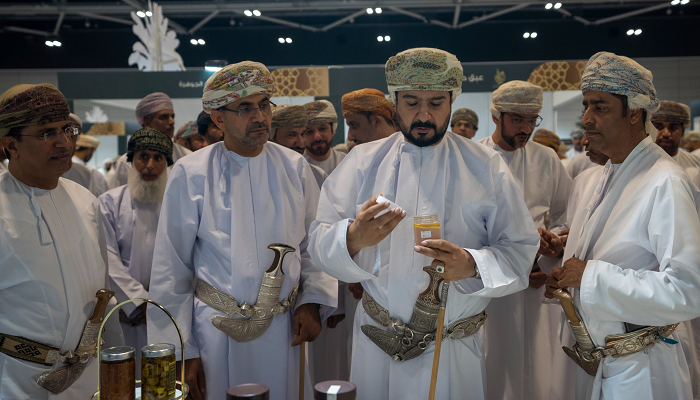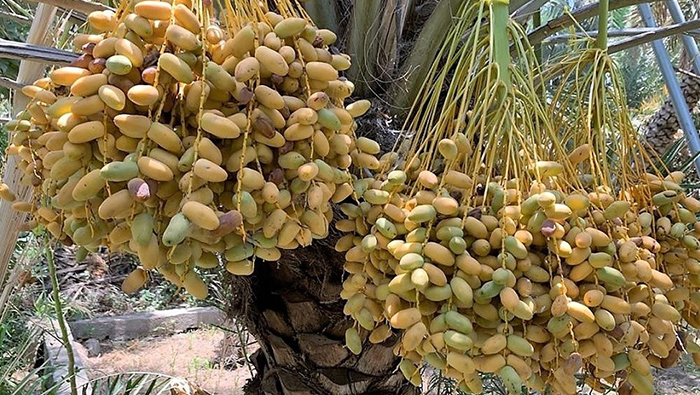

Muscat: During the past few days, wet weather began in more than one of the wilayats of the Sultanate, especially those concentrated in the governorates of North Al Sharqiyah, Al Dakhiliyah and the mountainous areas in the Governorate of South Al Batinah in the Wilayat of Rustaq.
Engineer Haitham bin Badr Al-Khanjari, palm specialist at the Ministry of Agriculture, Fisheries and Water Resources, said in an interview with Oman News Agency, “There are varieties of dates such as Qas Battash, which starts harvesting early due to the favourable environment, the most important of which is the high temperature in the villages of the mountainous state, which makes it a destination for traders.
Al-Khanjari stressed that the Sultanate of Oman is currently one of the leading countries in the production of dates and is ranked eighth in the world and the second in the Gulf, as the number of date palm trees in the Sultanate is more than 9 million, spread over an area estimated at 62,000 acres, with a productivity of 51kg per palm, compared to a global average of 40Kg. The Sultanate of Oman’s production of dates reached 374,000 tonnes in 2021, and consumption accounted for 53% of production, while 4% was for manufacturing and 4% for export, and the rest were used as animal feed.
He pointed out that the discrepancy in date varieties is due to the variation in climatic conditions and environment, explaining that the Wilayat of Ibri is the most productive state in the Sultanate of Oman, with a production of 26,817 tonnes, according to 2021 statistics, followed by the states of Barka and Nizwa. The Khalas variety ranks first in terms of quality whose production during the year 2021 increased by 15%.
He added that an Omani individual consumes 60 kilograms or more, thanks to the advantages and benefits of dates, and the advantage of the length of the wet season, which begins at the end of April and continues in some governorates until the first half of November.
He stressed that there is a great interest by the Ministry of Agriculture, Fisheries and Water Resources in the field of establishing model farms among farmers, especially by providing support for the provision of tissue date palm seedlings. The project started in 2020 AD and more than 25,000 tissue palm seedlings were cultivated with an area estimated at more than 250 acres in various governorates of the Sultanate of Oman and more than 140 farmers have benefited from it so far.
With regard to the production of tissue palm seedlings, he said that more than 80 varieties of local and international date palm varieties have been introduced, including the Medjool variety and well-known Gulf, Maghreb and Iraqi varieties that have proven successful. .
Regarding the use of technology in the agricultural operations of the palm tree, Al-Khanjari explained that the Ministry of Agriculture, Fisheries and Water Resources, represented by the General Directorate of Agricultural and Animal Research, employed and adopted agricultural technologies and innovations, and conducted many researches that resulted in many innovations, the most important of which is the technology of pollination with a liquid pollen suspension by spraying to be an alternative to manual pollination. It is easy and affordable in terms of cost, ease and speed of implementation in pollination of palm trees, especially large palms. Drones are currently being used in date palm germination operations by spraying with liquid suspension and pest control such as palm dubas.
He pointed out that among the challenges facing date palms is due to pests and diseases, especially weevils and dubas.